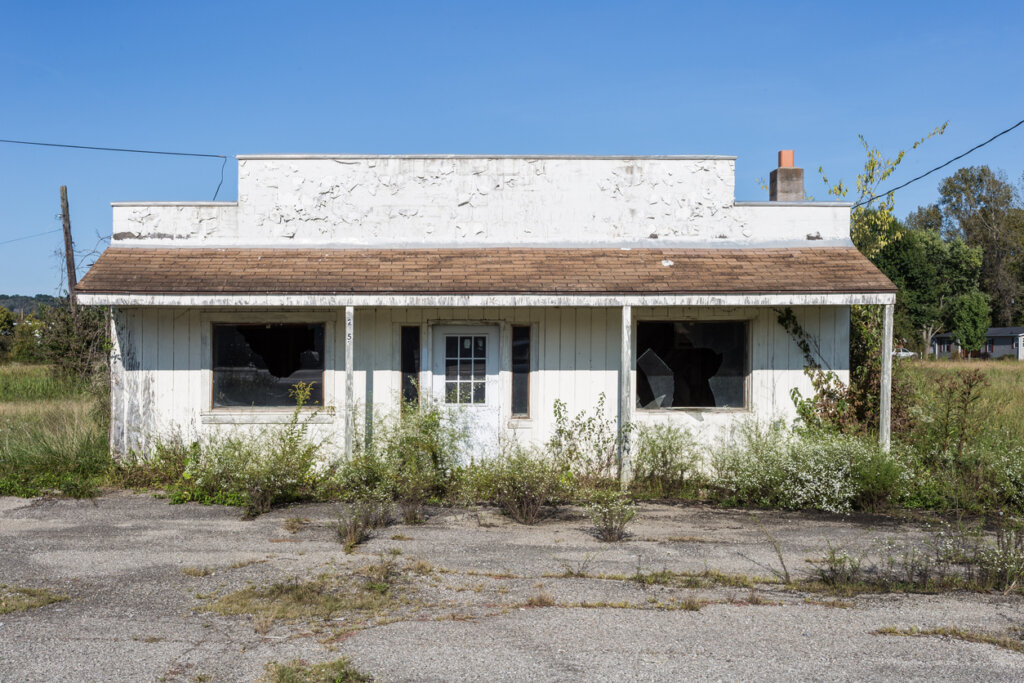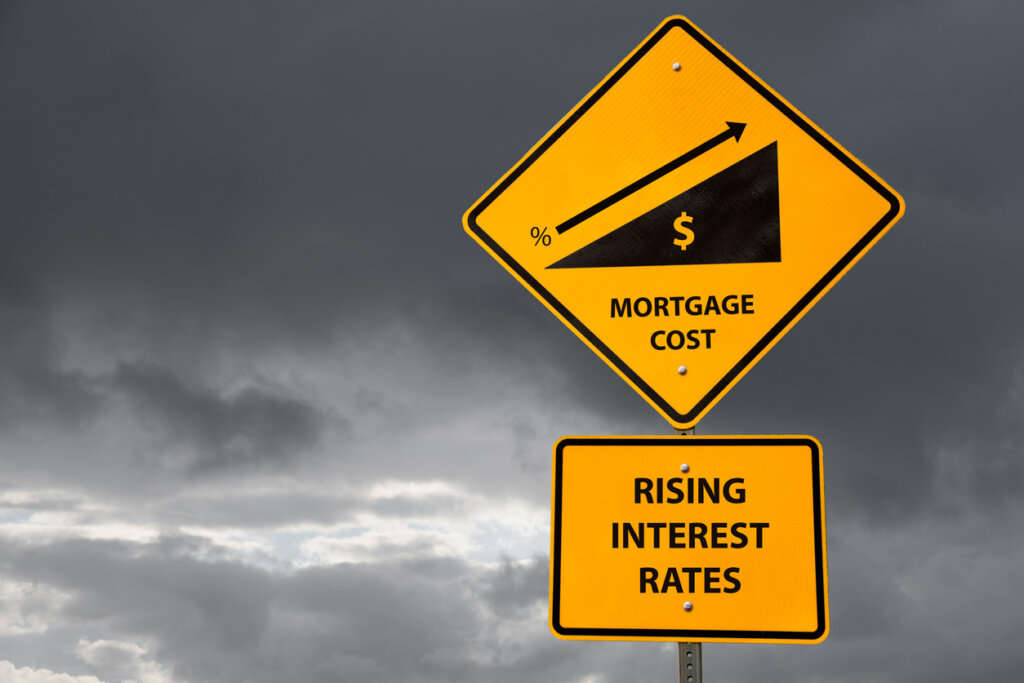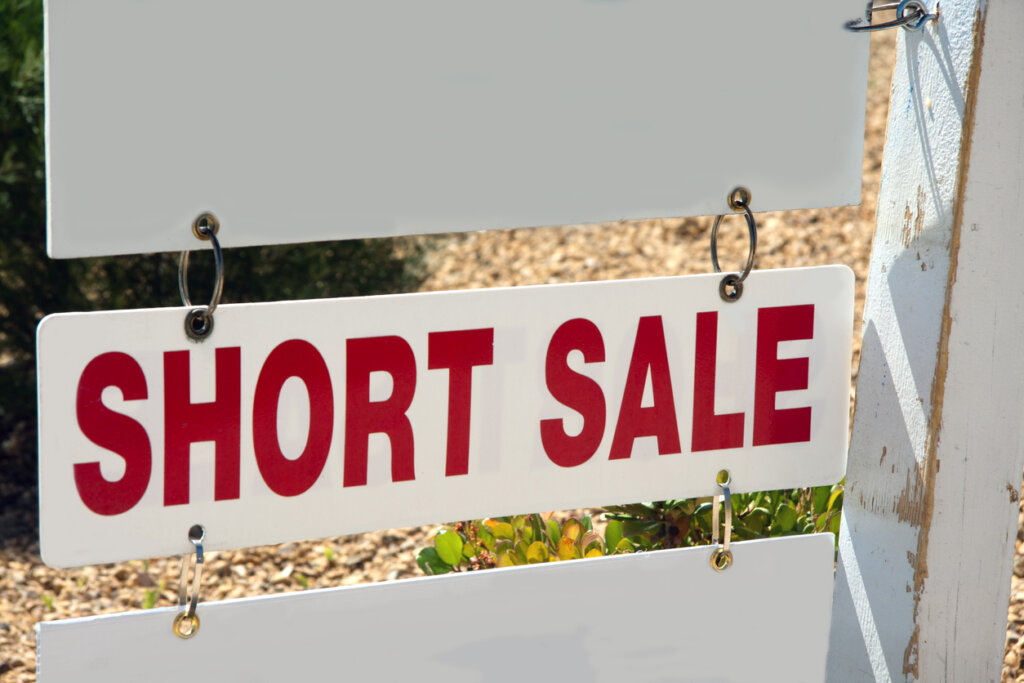In a blog post, I wrote last year, I mentioned that a house typically stayed on the market for just 19 days in December 2021.
The housing market actually had a breakout year in 2021. Clearly, it was a strong seller’s market then. But unfortunately, things haven’t been so rosy since, and the market has slowed down considerably.
Homes are spending a longer time on the market, which is indicative of falling sales.
Existing-home sales slipped for the 11th consecutive month in December 2022. This is the longest such stretch since 1999. In fact, home sales fell 17.8% in 2022, the sharpest annual decline since 2008.

Amidst all this negative news, you might be wondering, “Will it take me a long time to sell my ugly house in a slow real estate market?”
The short answer is Certainly not.
But you need to get creative and find solutions that work in the current buyer’s market.
This blog post discusses 10 creative techniques you can use when you are having a tough time selling your house using more conventional methods.
1: Use Conventional Methods But Price Aggressively
Aggressive pricing is the best strategy to adopt if you want to sell your ugly house fast in a retreating market.

In a seller’s market, you can price your home high and hope to sell at a higher price. But that approach will not work in the current market.
You must be willing to leave some money on the table for a seamless transaction. This approach is aggressive pricing, and it can be especially helpful if you want to buy another property immediately after selling your home.
When a quick sale is your top priority, price your home at the lower end of the market or slightly below its market value. However, don’t price your home way below the market value. That’s simply not aggressive pricing.
The main purpose of pricing aggressively is to attract multiple offers. Since homebuyers are seeing more homes on the market now, you may not see an aggressive bidding war for your home. But you can still hope for a few good offers.
Ultimately, you should aim to sell your house above the asking price (and above the market price if you are lucky).
Some Conventional Methods That Work
Hire a Real Estate Agent
The home staging and marketing experience of a real estate agent can work in your favor, as you could possibly get a higher price for your home.

The main downside of hiring a real estate agent is the hefty commission you’ll need to shell out.
Use For Sale by Owner (FSBO) Platforms
1. Zillow (Automatically syndicated to Trulia)
With over 270 million visitors per month, Zillow is a hugely popular real estate website. It’s user-friendly for both sellers and potential buyers.
The main drawbacks of Zillow are its limited exposure to FSBO properties and the difficulty for interested people to contact you directly.
2. Forsalebyowner.com
ForSaleByOwner.com is a free platform for listing your home. The company also offers some paid packages.
The main shortcoming of this platform is the pool of buyers will be limited. Also, there’s a good chance of your home selling for less than its true worth.
3. Facebook Marketplace
Facebook Marketplace is another place for free home listings. In addition, your listing can be shared in real estate groups or targeted neighborhoods to gain higher visibility with prospective buyers.
The problem with Facebook Marketplace is you could easily become a target for criminals if you aren’t careful with your privacy settings.
Offer Discounts to Help Buyers Deal with Rising Interest Rates
Instead of reducing your home price straightaway, you can offer to foot the closing costs.

Conceptual sign about rising mortgage costs due to higher interest rates with storm sky in background. Business and finance concept. Copy space.
As a general rule, a buyer will need to pay between 2 and 5 percent of the final purchase price in closing costs.
2: Rent-to-Own
Rent-to-own is an agreement to buy a property.
This option allows a tenant to rent your property with the option to purchase it at a later date. Rent-to-own can be an excellent option if you need to sell your property quickly but are not able to do so at the current market value.
In a rent-to-own agreement, a part of the rent is set aside for a down payment if the tenant decides to buy your home.
The biggest advantage of rent-to-own is your equity in the home remains unchanged. Since you are still the owner, even if your home ends up getting foreclosed, the tenant could lose out on their equity.
And even if you try to back out of the contract after the tenant has already spent a reasonable sum of money, it’s the tenant who could be forced to incur legal bills.
Even if the deal falls through, you don’t lose money, as the tenant will need to pay maintenance costs. In case the tenant ends up being unable to purchase your home, it’s the tenant who loses a small fortune as they’d have paid a higher rent all along.
The major drawback of rent-to-own is that the tenant can negotiate the terms of the agreement. The regulation that applies to rent-to-own arrangements is much lesser compared to traditional real estate transactions. Therefore, your tenant can request any terms and conditions that they feel are appropriate.
3: Owner Financing
Owner financing—also labeled seller financing—allows a buyer to pay for a home without depending on a conventional mortgage. Instead, the homeowner (you) finance the purchase. The interest rate will be higher than current mortgage rates, with a balloon payment due at the end of five years or whatever terms the buyer and seller agree to.
With owner financing, you act as the bank and finance the sale of the property yourself. This can be a good option if you need to sell your property quickly and can’t wait for a traditional mortgage to be approved.
The main advantage of owner financing is it allows you to sell your home as-is without the need to fulfill a lender’s appraisal regulations. The selling process is shortened as the due diligence requirements are eliminated. You also retain the title to your home.
The biggest disadvantage of owner financing is that it exposes a seller (you) to the risk of non-payment, eventual default, and on rare occasions, the need to start off the foreclosure process.
Owner financing also puts you on the hook for repairs if the buyer defaults.
4: Land Finance
Similar to owner financing, a land contract is an agreement where the seller finances the sale of the property, and the buyer makes payments to the seller directly.
Land finance is a legal contract where you finance the buyer’s purchase of your home. Don’t let its name mislead you. A land contract need not necessarily be an agreement to buy vacant land (though it can be). Frequently, it’s a contract to purchase a house, including the land under and around it.
Land finance is an easy way to sell a low-cost property when a low-budget mortgage isn’t an option. In addition, financing is simpler to obtain, as the terms can be anything that suits you and the buyer. You may also be able to get a high rate of return.
The main disadvantage of land finance is it can take a long time and/or significant expense to foreclose on a non-paying buyer, subject to state law. While you can initiate court action against the buyer within as few as 40 days, trial completion could take a year or longer.
5: Mortgage Transfer
A mortgage transfer enables you to transfer your present home loan—including its current terms and interest rate—to another person. This permits the other person (buyer) to assume responsibility for your home and the lender’s lien on it without the need to get a new mortgage.
An assumable mortgage permits the buyer to purchase your home by taking over your mortgage loan. The main reason a buyer would decide to buy your home with an assumable mortgage is to make the most of financing with a lower rate of interest, especially if rates have risen since you originally bought the home.
The final decision over the approval of an assumable mortgage transfer isn’t left to the seller (you) and buyer. The mortgage assumption must be approved by the lender of the original mortgage before the final sale deal can be signed by either party. Then, the buyer must apply for the assumable mortgage transfer and fulfill the lender’s stipulations, such as being creditworthy and having sufficient assets.
The main downside of a mortgage transfer is that all home loans are not eligible for it. An unofficial transfer is an informal arrangement that isn’t a good idea. Under this agreement, you continue making mortgage payments, and the buyer reimburses you.
Many loan agreements don’t allow mortgage transfer, which means you could face legal trouble if your lender becomes aware of it. In addition, you’ll be solely responsible for the loan even when you don’t live in the home any longer. As a result, you’ll be on the hook if the buyer stops making loan payments.
6: Subject to Sale
Subject to sale is similar to a mortgage transfer, but the buyer takes over the seller’s mortgage without the bank being notified. The seller releases the title (deed) to the buyer, but the debt remains in the seller’s name.
As a seller, you would agree to a subject-to-mortgage when you are desperate to sell your home quickly. Your home may be in danger of foreclosure, or you may be unable to keep up with your mortgage payments. It’s certainly not an ideal scenario. However, you can make a quick sale by excluding the bank from the equation.
From a seller’s perspective, the main advantage of a subject to sale contract is that you get a lump sum of cash when you sell your house. The amount you get could be as high as 20 percent of the value of your house.
For instance, if the value of your house is $250,000, you can get a lump sum of $50,000 cash. This is the reason you might consider agreeing to this strategy. It’s a great strategy if you need some immediate cash and you can’t afford to wait for a better offer.
For the buyer, subject to sale can be advantageous as there are fewer upfront costs, and they may get favorable interest rates.
The main disadvantages of subject to sale for you are that home insurance could be complicated, and your home could be seized if you go bankrupt.
7: Short Sale
A short sale happens when a homeowner in grim financial condition sells their home for a price that’s less than the amount they owe on the mortgage. In a short sale, the entire proceeds of the sale go to the lender of the original mortgage. Also, the lender either forgives the difference or obtains a deficiency judgment, which would require the original borrower to pay the amount that’s left over.

short sale sign on pole with copy space
Short sales are common in a declining market. The lender will, however, consider the following two crucial factors before approving a short sale:
- The value of your home has to be less than what you owe on it. Most often, the lender will review recent sales of similar properties to make certain this is the case.
- You must prove financial hardship and show that you don’t have the income or assets to repay the remainder of the outstanding amount.
Once your lender approves the short sale of your home, you are in charge of selling your home. However, there are some hurdles. The lender is still responsible for the negotiations.
The lender can accept or reject buyers’ offers. Remember, it’s the lender who has a bigger interest in recouping costs.
8: Auctions
Selling your home through an auction can help speed up the sale process. Auctions are a fast and efficient way to sell your home and can generate a lot of interest from potential buyers.

The home auction process is typically a multi-stage process that starts when you first contact an auction company. Frequently, the first step of selling your home at an auction is analyzing it to check if it’s a right fit for the auction process.
You can then move on to selling your home at auction. Setting a reserve price for the auction will safeguard you against losing money. A reserve price specifies your unwillingness to sell your home below a specified amount. (Note: You can also set up an auction for your home without a reserve price.)
You can opt for an online property auction, a live auction, or a hybrid of both. Once you determine the format of the auction, you can start marketing.
The auction company will promote your home and get the information about your home in front of the best-qualified prospective buyers. Marketing your home normally takes place for a month before the auction date.
On the day of the auction, the bidder who exceeds your reserve price with the highest bid will buy your home. The auction process normally happens on an accelerated timeline. Hence, the buyer can complete the purchase agreement formalities on the auction day itself.
The main drawback of the auction process is it takes a further 30–45 days from the auction date for the closing to take place.
9: Partner with a Real Estate Investor
A real estate investor may be willing to partner with you to purchase your home. This can especially be a good option if you want to sell your home fast and don’t want to go through the traditional selling process.
In this scenario, a real estate investor will put your home under contract and give you a deposit. The investor is essentially committing to buy your home but will try to “assign” his interest in the contract to another investor/buyer. This act of one buyer assigning their contract to another buyer is also known as “wholesaling.”
The main advantage of selling your home to a real estate investor is they will make an as-is purchase, meaning you don’t have to update your kitchen or bathrooms. Also, there’s little risk they won’t close for lack of money, which may not be the case with a typical homebuyer.
Another advantage of partnering with a real estate investor is that an all-cash investor can close your home in two weeks, while it can take two months for an average home buyer, as they’re usually dependent on a home mortgage.
Wholesaling is a legitimate strategy and more often than not, the investor closes on the purchase. They don’t always tell the Seller (you) that they aren’t going to be the one closing, but instead they will find a buyer.
The major downside is that the Seller takes their property off of the market for two or three weeks, sometimes longer. And then, the investor backs out of the deal when their inspection period is about to expire. This is the real downside from the Seller’s perspective. But sometimes, they are willing to take the risk if they know their property isn’t going to sell due to its condition.
10: Sell to a Home Buying Company (Home Seller Heaven)
Home buying companies specialize in buying houses for cash. The biggest advantage of dealing with such companies is that they can close a sale in as little as seven days. However, keep in mind that these companies typically offer less than fair market value for your property.

Selling to a home buying company like Home Seller Heaven allows you to skip the inconvenience of listing your home, multiple showings, and weeks of needless stress. You can sell your home as-is and save money on expensive repairs.
You can also save thousands of dollars in commissions and other real estate fees. You can get cash fast without the need to wait for the perfect buyer to show up.
In Summary
While these options may help you sell your property more quickly, they may also result in a lower sale price. So, weigh the pros and cons of each option and consult with a real estate agent, an attorney, or a tax professional before you determine the most profitable course of action for your specific situation. Additionally, in some states, some of these options may require a real estate license. Hence, it’s important to check with the local authorities before trying to sell your house in a creative way.
